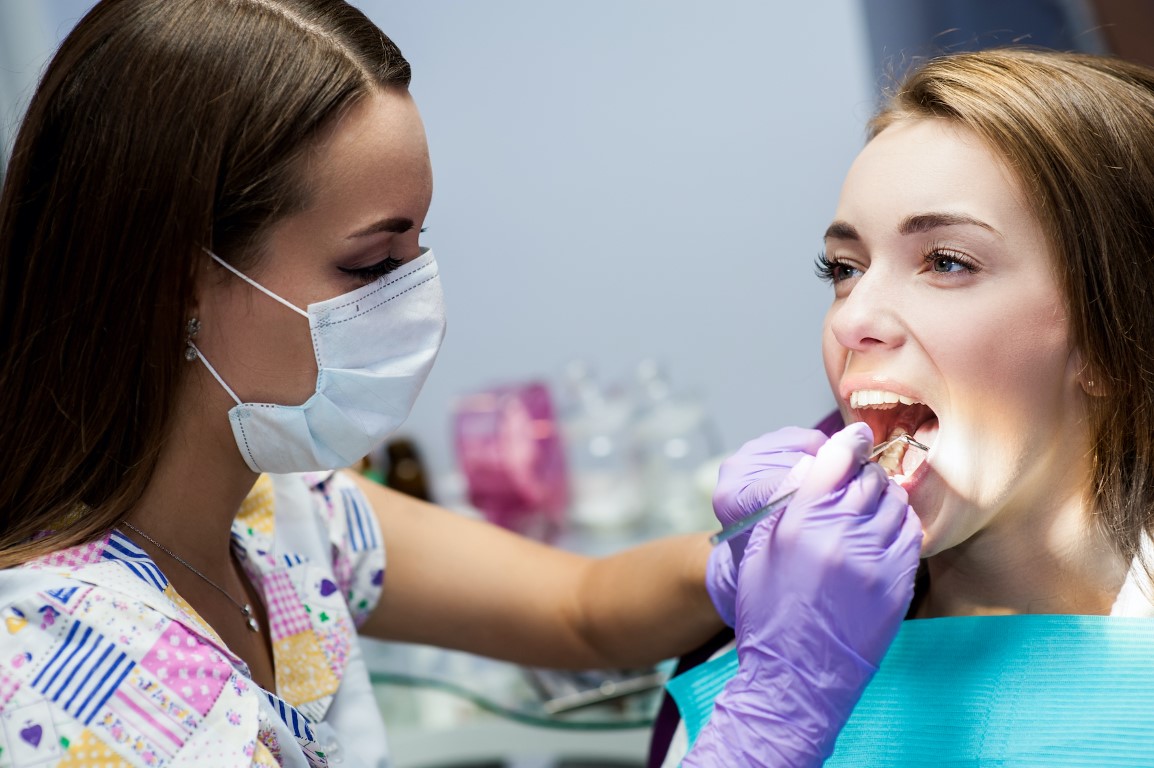Leukoplakia is a grey or white patch that usually appears on the tongue, on the floor of the mouth, or in the cheek's interior part. The patch usually appears when the mucous membrane present in the mouth is affected by any form of irritation. The patches usually develop slowly and may also change with time. They are painless; however, they are sensitive to heat, touch, spicy foods, and any other form of irritation. Leukoplakia patches may occur at any point in your life. However, the condition is common in adults.
The Symptoms of Leukoplakia
The leukoplakia patches appearing in the gums, tongue, or the roof of the mouth may be:
• Slightly raised or thick
• White or grey
• Rough or hardened in texture
There is the "hairy" type of leukoplakia that usually appears in the mouth. It is rampant in people who have HIV/AIDS. The patches usually appear on the tongue and other parts of the mouth; it may seem like you have thrushes in your mouth. The condition is caused by the fungus known as Candida. It happens if the immune system is not operating as it should.
Hairy Leukoplakia
Hairy leukoplakia may cause some white patches that may resemble ridges. The patches usually appear on the sides of the tongue. Some people may assume that they have oral thrush, an infection that can be handled easily. Leukoplakia usually affects people who have a weak immune system.
When Should You See a Dentist
Leukoplakia does not cause discomfort; nevertheless, it is a severe condition - usually it affects people who have a weak immune system. Visit us at the Upper Hunt Club Dental Centre in Ottawa if you have any of the following symptoms:
• Red or white patches in the mouth
• Sores in the mouth that have taken more than two weeks to heal
• Experience pain in the ears while swallowing
• Some persistent changes in the mouth tissue
• Progressive inability to open the jaw
The Causes of Leukoplakia
The cause of leukoplakia has not been established yet. It is assumed that the chronic irritation that arises from the use of tobacco contributes to leukoplakia. However, it is more of an assumption. In most instances, individuals who use smokeless tobacco are at the risk of developing leukoplakia since they usually hold tobacco against their cheeks. The chronic irritation may also be caused by:
• Long-term use of alcoholic products
• Broken dentures
• Broken teeth rubbing on the surface of the tongue
The Risk Factors of Leukoplakia
If you use smokeless tobacco, you are at risk of contracting leukoplakia. Furthermore, you may also end up suffering from oral cancer. The long-term use of alcoholic products may also increase your risk of contracting leukoplakia.
The Complications Associated with Leukoplakia
Leukoplakia may not cause permanent damage to the mouth tissues. Nevertheless, you are at the risk of contracting oral cancer. Oral cancer may form near the leukoplakia patches. The patches may end up showing some cancerous changes. Even after getting rid of the leukoplakia patches, oral cancer remains.
How to Prevent Leukoplakia
To prevent leukoplakia, you should stop consuming alcohol and tobacco products. Consult a professional for some guidance on how to quit alcohol and tobacco use. If you continue smoking or chewing tobacco products, you should visit us at the Upper Hunt Club Dental Centre in Ottawa for an oral cancer screening. Keep in mind that oral cancer is painless until it has advanced. As a result, the best way to prevent leukoplakia is by quitting alcohol and tobacco.
Leukoplakia Treatment Options
To treat leukoplakia, the source of irritation should be eradicated. For instance, if a broken denture causes the leukoplakia, the denture should be repaired. If the cause of leukoplakia is due to tobacco, it is best to quit smoking. Leukoplakia is harmless, and it can be eradicated in a few weeks or months after getting rid of the source of irritation. If the irritation source has been removed and the condition persists, you may have to undergo surgery. The patches can be removed by a general dentist or an oral surgeon.
If you are suffering from leukoplakia, visit us at the Upper Hunt Club Dental Centre in Ottawa for a dental checkup to discuss treatment options. Contact us today to schedule an appointment!













